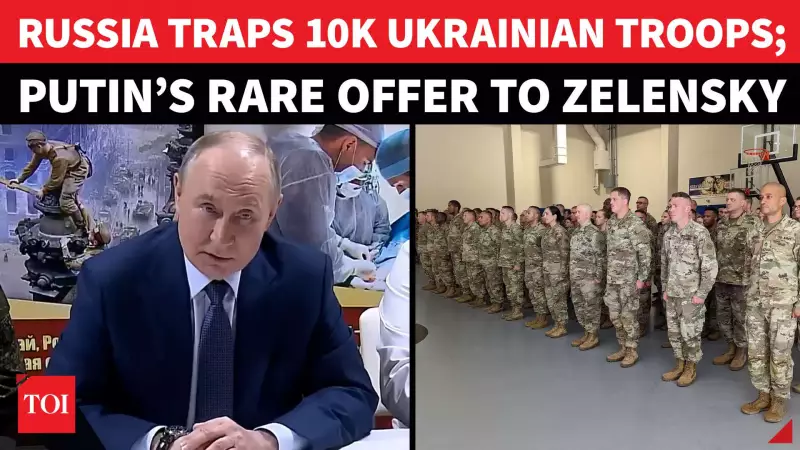
In a significant development in the ongoing Russia-Ukraine conflict, Russian President Vladimir Putin has extended an olive branch by proposing a temporary pause in hostilities. The Russian leader has simultaneously issued an unprecedented invitation to international media organizations to witness firsthand the military situation in the contested Donetsk region.
Ceasefire Proposal and Media Access
President Putin's offer comes amid intense fighting in eastern Ukraine, where approximately 10,000 Ukrainian service members remain encircled by Russian forces according to Moscow's claims. The Russian president has specifically called upon global news outlets to document the circumstances facing these trapped military personnel.
The dual announcement represents a strategic public relations maneuver as Russia seeks to shape international perception of the conflict. By inviting external media scrutiny, Putin appears confident about the narrative emerging from the frontlines.
Strategic Implications
Military analysts suggest this move serves multiple purposes:
- Potential de-escalation of immediate hostilities in a critical battle zone
- Opportunity for Russia to present its version of events directly to international audiences
- Possible preparation for negotiated settlements in specific conflict areas
- Increased pressure on Ukrainian leadership regarding troop welfare
The international community watches closely as international news organizations consider the Russian president's invitation. Previous similar offers have sometimes preceded significant shifts in battlefield dynamics or diplomatic initiatives.
Regional Impact and Global Response
The Donetsk region remains one of the most fiercely contested territories in the conflict, with both sides incurring substantial losses. The proposed temporary ceasefire, if implemented, could provide humanitarian relief to affected civilian populations while allowing assessment of military positions.
World leaders and diplomatic channels are expected to carefully evaluate the sincerity and conditions of Putin's proposal. The involvement of international media adds a unique dimension to this development, potentially increasing transparency or serving as a platform for propaganda, depending on implementation.
As the situation evolves, the global community awaits Ukraine's official response and clarification regarding access terms for journalists. The coming days will reveal whether this initiative leads to meaningful dialogue or remains a strategic communication exercise in the protracted conflict.





